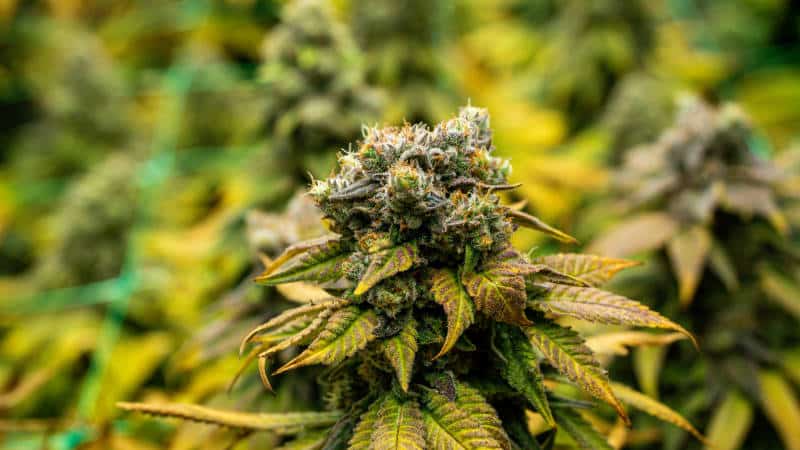Delta-9 THC: The Primary Psychoactive Cannabinoid in Cannabis
Delta-9 Tetrahydrocannabinol, commonly known as Delta-9 THC or simply THC, is the most well-known and prominent cannabinoid found in the cannabis plant. As the primary psychoactive compound responsible for the “high” associated with marijuana, Delta-9 THC has been the subject of extensive research and discussion. In this article, we will explore the properties, effects, potential therapeutic applications, and legal status of Delta-9 THC, shedding light on this remarkable compound’s significance within the world of cannabis.
What is Delta-9 THC?
Delta-9 THC is a naturally occurring cannabinoid found in varying concentrations in cannabis plants. It belongs to a class of compounds called tetrahydrocannabinols, which interact with the body’s endocannabinoid system, specifically targeting cannabinoid receptors in the brain and central nervous system.
Psychoactive Effects
Delta-9 THC is primarily known for its psychoactive effects, which result from its interaction with the CB1 receptors in the brain. When THC binds to these receptors, it triggers a series of chemical reactions that alter neural signaling, leading to changes in perception, mood, and cognition. This is what produces the euphoric or “high” sensation commonly associated with cannabis use.
Potential Therapeutic Applications
Beyond its psychoactive effects, Delta-9 THC has shown potential therapeutic applications in various medical conditions:
1. Pain Relief: Delta-9 THC has been studied for its analgesic properties, with research suggesting that it may help alleviate both acute and chronic pain, making it valuable for patients suffering from conditions such as neuropathy, arthritis, and multiple sclerosis.
2. Nausea and Appetite Stimulation: Delta-9 THC has been used to manage nausea and stimulate appetite, particularly in patients undergoing chemotherapy or struggling with eating disorders.
3. Muscle Relaxation: THC’s muscle-relaxing effects may provide relief for individuals with muscle spasms and stiffness related to conditions like multiple sclerosis.
4. Glaucoma: Some studies suggest that Delta-9 THC can lower intraocular pressure, potentially offering benefits for individuals with glaucoma.
5. Anti-Inflammatory Effects: Delta-9 THC has demonstrated anti-inflammatory properties, showing promise in conditions like Crohn’s disease and other inflammatory disorders.
6. Mood Regulation: Delta-9 THC may influence mood and emotional responses, which could be beneficial for individuals experiencing anxiety, depression, or post-traumatic stress disorder (PTSD).
Safety and Side Effects
While Delta-9 THC has potential therapeutic benefits, it is essential to use it responsibly and be aware of potential side effects, which may include:
1. Short-Term Memory Impairment: THC can temporarily affect short-term memory and cognitive function, leading to temporary memory lapses and difficulty with concentration.
2. Impaired Coordination: High doses of Delta-9 THC can affect motor skills and coordination, potentially impairing driving ability and increasing the risk of accidents.
3. Anxiety and Paranoia: In some individuals, especially with high doses or in susceptible individuals, Delta-9 THC may trigger feelings of anxiety, paranoia, or panic attacks.
4. Addiction Potential: While THC is not considered physically addictive like opioids, some individuals may develop a psychological dependence on cannabis.
Legal Status
The legal status of Delta-9 THC varies significantly from one jurisdiction to another. In many countries, including the United States, THC remains classified as a Schedule I controlled substance, alongside drugs like heroin and LSD. However, several states in the U.S. have legalized medical and/or adult-use cannabis, like Oklahoma, allowing for the regulated consumption of Delta-9 THC within specific guidelines.
It is crucial to adhere to local laws and regulations concerning cannabis use, as penalties for possession, sale, or distribution of THC can be severe in regions where it is still illegal.
Delta-9 THC and the Entourage Effect
In addition to its individual effects, Delta-9 THC also plays a vital role in the entourage effect. This phenomenon suggests that cannabinoids, terpenes, and other compounds found in the cannabis plant work synergistically to enhance each other’s effects. When combined with other cannabinoids like CBD, CBG, or CBN, Delta-9 THC’s effects may be modulated, potentially reducing unwanted side effects while increasing therapeutic benefits.
Delta-9 THC is the primary psychoactive cannabinoid in cannabis, responsible for the euphoric “high” associated with marijuana use. Beyond its psychoactive effects, THC has shown promise in treating various medical conditions, including pain, nausea, muscle spasms, and inflammation. As with any substance, it is essential to use Delta-9 THC responsibly and be aware of potential side effects and risks. The legality of THC varies from one jurisdiction to another, so it is crucial to adhere to local laws concerning cannabis use.
As our understanding of Delta-9 THC and other cannabinoids deepens, ongoing research will shed further light on their potential therapeutic applications and overall impact on human health. Whether for recreational or medicinal purposes, the responsible use of Delta-9 THC can offer unique experiences and potential health benefits within the complex and diverse world of cannabis.
Please follow all Oklahoma laws when purchasing cannabis, and purchase from a legally OMMA licensed dispensary so you know they have to follow testing guidelines, and if you have any questions come to any Fire Leaf Dispensary in the Oklahoma City Metro Area.





